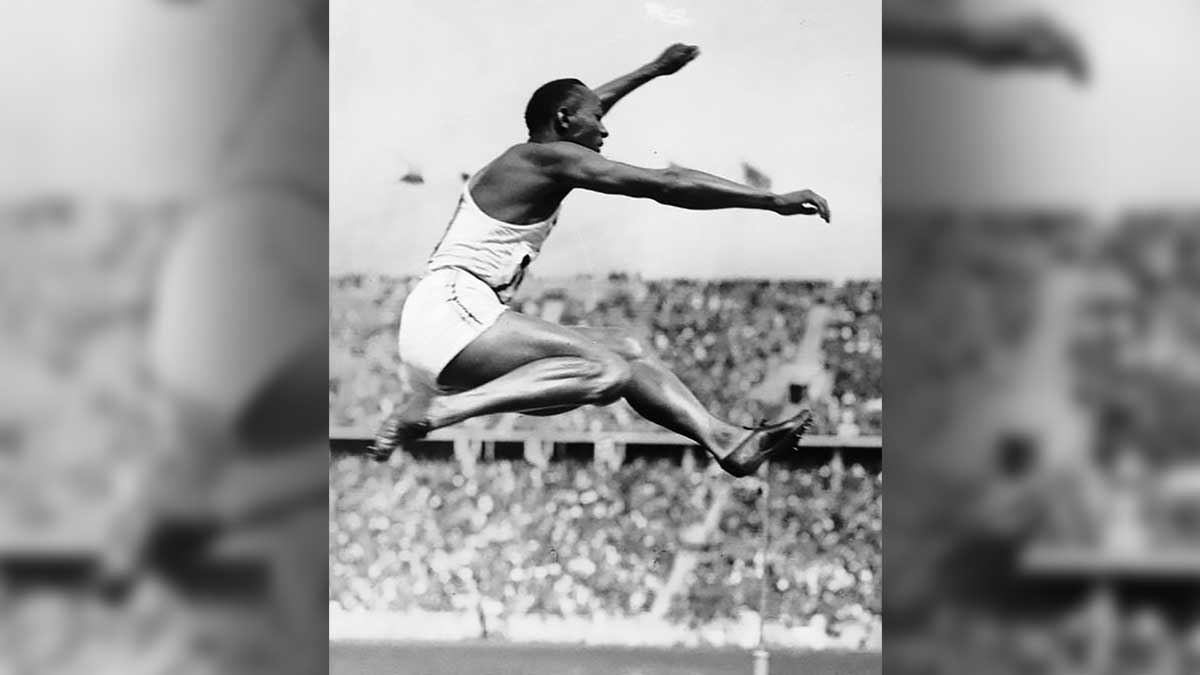
Aug. 9, 1936

Jesse Owens won his fourth gold medal as a member of the 4×100-meter relay team that set a world record of 39.8 seconds. The success of Owens and other Black athletes defeated Nazi leader Adolf Hitler’s plans to showcase “Aryan superiority.”
The son of Alabama sharecroppers, he and his family moved to Ohio as part of the Great Migration. In 1935, he burst onto the track scene when he broke world records for the 220-yard dash, the 220-yard hurdles and running broad jump.
Despite criticism from the Nazis, Owens became the star of the Berlin Olympics by breaking world records in the broad jump and the 200-meter race as well as tying the record in the 100-meter race. After winning the gold medal in the broad jump, German athlete Luz Long was the first to congratulate Owens.
“It took a lot of courage for him to befriend me in front of Hitler,” Owens recalled. “You can melt down all the medals and cups I have and they wouldn’t be a plating on the 24-karat friendship I felt for Luz Long at that moment. Hitler must have gone crazy watching us embrace. The sad part of the story is I never saw Long again. He was killed in World War II.”
Although credited with “single-handedly crushing Hitler’s myth of Aryan supremacy,” Owens returned to the U.S. to find it no different than when he left.
“When I came back to my native country, after all the stories about Hitler, I couldn’t ride in the front of the bus,” Owens said. “I had to go to the back door. I couldn’t live where I wanted. I wasn’t invited to shake hands with Hitler, but I wasn’t invited to the White House to shake hands with the President, either.”
He did receive a ticker-tape parade in New York City, but when he went to attend a reception in his honor at the Waldorf-Astoria, he had to ride a freight elevator.
In 1950, he was voted the greatest track and field star of the first half of the century, and in 1976, President Ford gave him the Medal of Freedom. Four years later, he died, and not long after, the city of Berlin named a street in his honor. He posthumously received the Congressional Medal of Honor.
“Perhaps no athlete,” President Jimmy Carter declared, “better symbolized the human struggle against tyranny, poverty and racial bigotry.”

